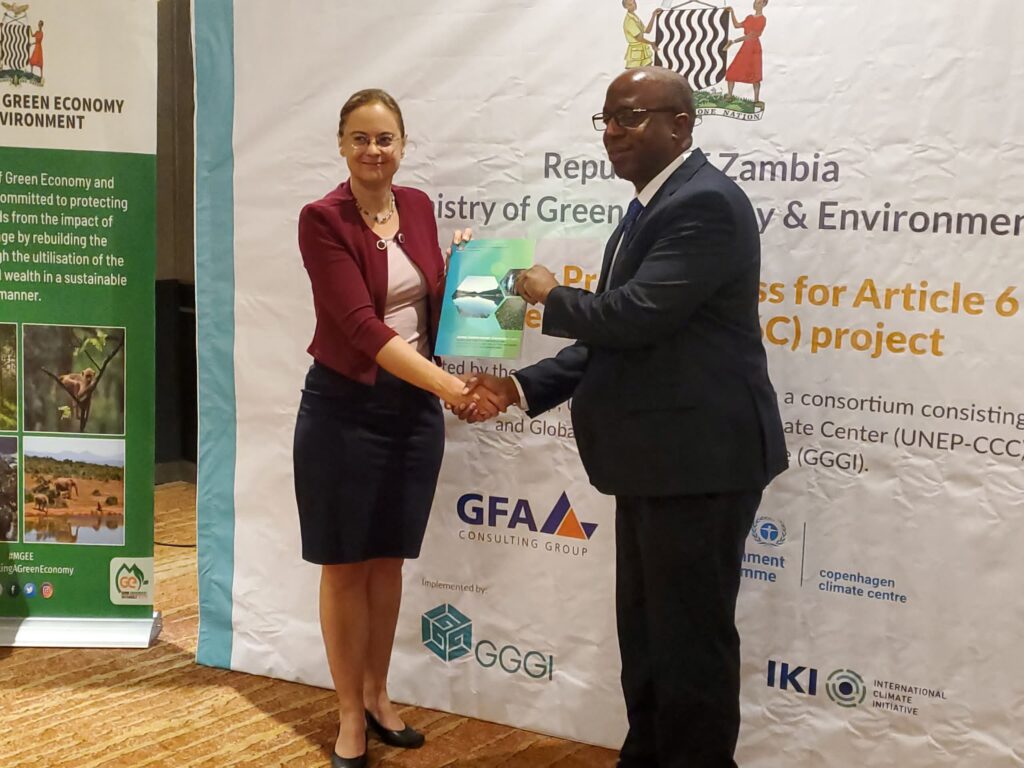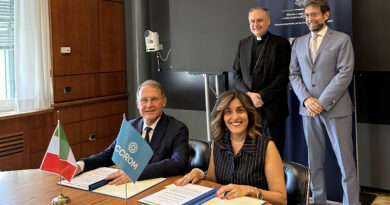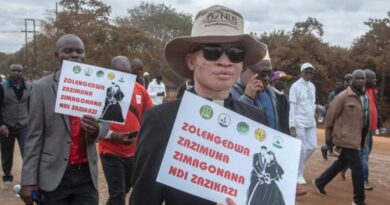Zambia Launches Guidelines for Carbon Market Framework Under Paris Agreement Article 6
In a momentous event, the Republic of Zambia, represented by the Ministry of Green Economy and Environment, has introduced comprehensive guidelines for the submission and evaluation of projects aimed at reducing greenhouse gas emissions under Article 6 of the Paris Agreement.
This historic step underscores Zambia’s unwavering commitment to combating climate change and actively participating in global carbon markets.
In a speech delivered by Dr. Douty Chibamba, the Permanent Secretary of the Ministry of Green Economy and Environment, on behalf of Hon. Eng. Collins Nzovu, the launch of these guidelines is celebrated as a significant milestone in Zambia’s journey to address climate change.
Dr. Chibamba emphasized the Zambian government’s dedication to promoting both public and private sector efforts to reduce emissions transparently and efficiently, with streamlined approvals and centralized monitoring, reporting, and verification. Zambia is aligning its national systems and processes with the evolving dynamics of carbon markets.
He said that these guidelines are one pillar of Zambia’s comprehensive Carbon Market Framework. Other pillars include rules for transitioning Clean Development Mechanism (CDM) and Voluntary Carbon Market (VCM) projects to Article 6, establishing necessary infrastructure and registry procedures, and defining fees for administrative purposes and benefit-sharing mechanisms.
The implementation of the Article 6 framework is a crucial step forward in enhancing climate action within Zambia. It is expected to generate new sources of funding for emission reduction initiatives, increase ambitions to reduce emissions, and promote the adoption of cleaner technologies.
Dr. Chibamba highlighted Zambia’s dedication to sustainability and climate action, emphasizing transparency, inclusivity, and environmental responsibility. The country aspires to set an example for the region and the world in addressing climate change and promoting green growth.
The event was attended by distinguished guests, including the German Ambassador to Zambia, Her Excellency Ms. Anne Wagner Mitchell, and representatives of the Supporting Preparedness for Article 6 Cooperation (SPAR6C) program.
Ms. Mitchell said that a budget of EUR 20.4 million was launched in 2022. SPAR6C aims to prepare partner countries for meaningful participation in international carbon market transactions, contributing to both emission reduction and sustainable development co-benefits. Zambia is one of four African countries selected to participate in this program.
The newly introduced guidelines, an integral part of Zambia’s Carbon Market Framework, provide clear criteria for evaluating emission reduction activities, ensuring environmental integrity, sustainable development, and ambition raising.
Ms. Mitchell also outlined financial additionality and contributions to achieving Sustainable Development Goals (SDGs), along with a comprehensive set of transparent indicators for assessing projects, covering the entire project development process from application to approval.
At the same event a representative from the Global Green Growth Institute (GGGI), Ms. Angela Nantulya-Heinonen, commended Zambia’s efforts in transitioning to a green growth model, reducing poverty, and ensuring environmental sustainability.
Ms. Angela says GGGI has been working closely with Zambia through the SPAR6C program to develop innovative green growth solutions and facilitate investments in emission reduction activities.
She emphasized Zambia’s ambitious stride toward a greener and more sustainable future, encouraging both the public and private sectors to embrace these guidelines and join the global effort to combat climate change.
The launch of these essential guidelines underscores Zambia’s unwavering commitment to climate action, sustainable development, and global cooperation, setting a positive example for Africa and the world and emphasizing the significance of protecting the environment and advancing toward a greener, more sustainable planet.



